|
The lights faded out, and just as quickly as we had come together, my latest play came to a close. The Century Box. Itself, a play about history, about the people of Grove City, Ohio, and Jackson Township --- about remembering them --- is now itself, history. Below are some final thoughts about this experience, why this play was different than my others, and some wonderful production photos courtesy of The City of Grove City. I like to think of theatre as this culmination of frenetic energy that bursts forth onto the stage and then disappears. It was there, it happened. You go see it. You live with it. You applaud when it's over. You go home. They pack up. Everyone moves on. It's like the circus that way. It's like life. So why did The Century Box feel different? After the curtain falls, the actors and crew strike the sets, lights, costumes, and everything else that made this temporary world something more. This is how every theatre show ends. I know this. I live this. It's simultaneously one of my most favorite and "unfavorite" things about making plays. I love that they are ephemeral and real and just for us, those in the room in that moment, and then they're gone. Yet, I hate when they're gone. I miss them. This one, The Century Box, I will never forget. This one was real. A century box is simply another term for a time capsule. So, much like building an actual century box and filling it with history, I built a play which centered around a century box and ultimately served as one. Usually, I write about fictional people. I make up stories. This play --- these people, these stories --- this one was based in truth; based in history. It came with this enormous responsibility to honor these sons and daughters of Grove City and Jackson Township, to tell their stories, and to remember them. You see, this year marks the 200th Anniversary of Jackson Township --- specifically, the Jackson Township located in the southwest corner of Franklin County, Ohio. I specify because, just in Ohio alone, there are 37 Jackson Townships; something I now know because I wrote this play. This Jackson Township, the one which encompasses The City of Grove City, has been my focus for over a year; and it has been my absolute pleasure to get to know the story of this township and the people that built it. It was all the more sweeter to see it come to life; to see history take the stage. Even more rewarding was watching the audience watch the play. More then once, I saw people recognize the historical figures I chose to highlight, or remember a story because their parents or grandparents had lived it. A family name would be said and an excited chatter would crop up somewhere in the audience. Family names like Grant, Hoover, Miller, Breck, Chambers, Schilling, Gantz, Borror, Willert, Orders, Smith, Dunnick, and so many more. Descendants of the people we were portraying were there, watching their grandparents and great-great grandparents exist again, if only for a moment; and every time one of them came up after the show and shared their story with me, I was moved. Like I said, it's an enormous responsibility to portray history on stage. History is such a fragile concept; it truly is just stories isn't it? Stories that we pass down from generation to generation. Our stories. Our viewpoints. Of which we all have our own, don't we? History is a combination of facts and memories; so to take that and then dramatize it... there may be two sides to every story, but there are an immeasurable number of sides to history. Thus, there are infinite possibilities as to what a century box for Grove City and Jackson Township could hold. This play was but a glimpse of what I found, and even that feels like just the beginning. While this chapter of The Century Box has come to a close, I'm not done with this play. I hope to share more stories, to see this play back to the stage, and to watch it grow and evolve as the City of Grove City and Jackson Township has grown and evolved over the centuries. Until then, I will fondly remember the last weekend of May 2015, when the Little Theatre Off Broadway took a bunch of my words and made history come alive. I love what my director, Lisa Napier-Garcia, and her cast and crew put together, but it was no easy task. 200 years carries with it more history than any one person could have possibly encapsulated into one play. My hope is that the play inspired the audience to do what I did --- I hope it encouraged them go to the Grove City Library and read about their history. I hope they will visit the Southwest Franklin County Historical Society, and that they will take some time to find out more about the people who came before them; to research the pioneers and entrepreneurs that built their city; to find and share the stories of the people that lived here. To remember them. Because they are fascinating. And I hope I did them proud. Photos courtesy of The City of Grove City. May 29-31, 2015 at Central Crossing High School.
The Century Box by Jeremy Sony Presented by: The City of Grove City and The Little Theatre Off Broadway Directed by: Lisa Napier-Garcia. Featuring: John Bils, Kate Charlesworth-Miller, Amelia Crabtree, James C. Daniels, Glen Anthony Garcia, Nicholas Garcia, Kathy Hyland, Tahrea Maynard, Mark Miller, Holly Rahrig, Sue Rapier, and Martha Kathryn Smith. Production Crew: Donnie Lockwood, Kat Wexler, Bev Babbert, Michael Bynes, John Heckman, D.C. Simpson, and Jai Furlong. Special Thanks: Grove City Museum, Karen Lane, Jim Hale, Mike Lilly, the Staff at Grove City Library, Central Crossing High School (Billy Smith, Catherine Knoblauch, Sophia Friend, Nathan Weaver). Kicking off 2015 with some excitement! My home away from home, Nashville, beckons once again as I'm writing my third play for ClassAct Dramatics at Street Theatre Company! First, we went to Sleepy Hollow in 2013. Last year, it was off to Sherwood Forest. And now, I'm taking them to one of my favorite places of all... Wonderland!
Earlier this year, the City of Grove City, Ohio, commissioned me to write a new play for 2015 to commemorate the 200th Anniversary of Jackson Township and the role that Grove City has played in its history and development. While the full play will premiere next Spring, the city is working with their hometown theater, the Little Theatre Off Broadway (LTOB), to present a first look preview of the play at this weekend's Arts in the Alley festival.
It's been a great pleasure working on this play thus far; and although I can't share the full story with you until next Spring, I'm thrilled that Grove City and LTOB are bringing this first look to the stage. And all during an arts fest celebrating its 35th year. They're calling for an absolutely beautiful weekend in Grove City, like high 70s/low 80s, so please come and enjoy the arts festival and stop by LTOB for one of our six performances of the first look of the Grove City Play. See you in the theater!
So they talked about me on TV this weekend. What? Yeah. I don't think that will ever get old. It's pretty sweet (and by "they" I mean my director, Lisa, and the host of a local show with regard to a new play being previewed at Grove City's Arts in the Alley later this month). On Sunday, my mom called to tell me that my aunt phoned her to say that she heard my name mentioned on OUT N ABOUT COLUMBUS. After some internet research, this was proven true. OUT N ABOUT COLUMBUS spoke with my director (and active member of LTOB), Lisa Napier-Garcia about the history of LTOB and how we're getting involved with Arts in the Alley by sharing part of this exciting project. I've tried to cue up the segment below. Lisa's interview begins close to the 17:50 mark. Keep reading after the YouTube video to find out more about my Grove City play. The play is one of two plays I've been working on for this Fall (the other being ROBIN HOOD... more on that later this week). I call this one THE GROVE CITY CENTURY BOX: A HISTORICAL MYSTERY. Commissioned by the Grove City Historical Commission, the play will have a full production in Spring of 2015 to coincide with the 200th Anniversary of Jackson Township.
I'm excited to be working with LTOB (The Little Theatre Off Broadway) in Grove City on the production side of things, as they will present a preview of the play, September 20-21 at Arts in the Alley. Think: extended trailer. You'll have six chances to stop by LTOB during this annual arts festival in the heart of historic downtown Grove City and get a glimpse at what we're working on for next Spring. About the play: In present day Grove City, Sydney and her brother Dylan are prepping a house for auction when Sydney discovers what appears to be an abandoned time capsule. When they open it, it unlocks a mystery that centers on a young girl in 1952. Who she is, what happened to her, and why she created the forgotten century box can only be answered by digging through the history of Grove City---and the answers Sidney finds will forever change her. Showtimes and further information will be posted as soon as I have it! 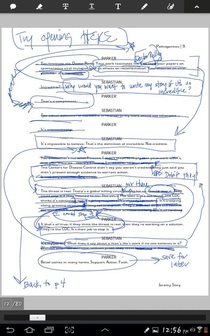 One of the key components of writing a great play is rewriting. Writing IS rewriting; it's a phrase tossed around as one of the tenets of storytelling in this modern age. Many a creative writer would probably agree with this. Playwrights have editors too. They're just called something else. And we couldn't do this without them. Who am I talking about? Plays are written for the stage, they are designed to be performed. By people. Usually out loud. Spoken. Orated. By actors. To an audience. Back when stories were handed down over campfires and around tables at the local public house, the stories evolved over time to make them better, more enjoyable, more understandable. Like the storytelling of old, plays are stories designed to be shared with a crowd of people. Yes, we have more storytellers working collectively at the same time thanks to a stage full of actors, but the idea is the same. A play needs to be read aloud, and eventually staged, to engage the "editors" that the playwright has access to. We call them actors, directors, and dramaturgs. They are one huge part of the new play development process. We'll get to the other part in a moment. For anyone reading this who has never been part of new play development, here is one quick example: a writer brings in a script, actors read it aloud, and anyone in the room offers feedback on what they just heard. Writer then takes script and then, after processing feedback, rewrites. Rinse. Repeat. Ideally, this process leads to production. Until then, playwrights need this collaborative environment and feedback to help determine what stays and what goes. While, in the end, the playwright is the ultimate authority on what words end up in the script, I'm a firm believer in readings. The voices in your head only go so far because plays aren't meant to be contained in your head. They need voices from actors. For years, I've bribed many an actor with pizza or Jimmy Johns to read my words. Every one of them were helpful. There is, however, a diminishing return on just readings. Eventually, you need more. Plays need actors, yes. They also need input from directors. From creative staff. They need the help of a theater. Since last September, I have had the joy of working on my new play, PATHOGENESIS, with the talented folks at Tennessee Repertory Theatre in Nashville. As part of the Ingram New Works Lab, I've been able to bring in pages, scenes, and drafts to their writers' room and hear my words interpreted by their amazing actors; I've received feedback from those actors, my fellow writers, and the artistic staff at TNRep. PATHOGENESIS is a father/daughter play set at the end of the world. A three-hander, the third character wasn't working at the start---his impact on the father and daughter story wasn't clicking; he is one example of a character that has significantly changed during this workshop process. Changed for the better. On top of the feedback, workshops like this one have the added benefit of offering invaluable education on the craft. I'm not the only playwright in the room, and when another writer shares work and receives feedback, that feedback can illuminate me as much as the other writer. On top of that, thanks to the set up of TNRep's program, I've had the immense pleasure of getting to know and receiving one-on-one feedback from this season's Ingram New Works Fellow, Doug Wright. If it wasn't enough that he's a master of the craft with a Pulitzer and a Tony, the man is also wicked smart, generous, kind, and inspiring as a person. Needless to say, with all that support over several months, PATHOGENESIS has evolved and developed. But we weren't done after the monthly development meetings. Now, in the past week, we took a gigantic leap forward. While the months of readings and feedback were essential in crafting the play to this point, TNRep has stepped it up in advance of the Ingram New Works Festival. Like the play evolves, so too does the method of rewriting. At this point, I can only speak for myself. If you follow Tennessee Rep on Facebook or check out their blog, you'll meet Nate Eppler, Andrew Kramer, and Dean Poynor. The plays they're writing are hysterical, poignant, surprising, and a large number of other adjectives that add up to "must see". Each of us has taken to working with our festival team separately, so I'm looking forward to seeing how the last few weeks have treated their work. For me, where I used to listen to a reading, hear feedback from the room, and go home and write, the process is now more entwined. Recently, I had the pleasure of meeting my festival cast, the wildly talented Brian Russell, Evelyn O'Neal Brush, and Patrick Waller; and my awesome director, Christopher Bosen. I tout them here, not because I'm trying to talk them up, but because our two in-depth rehearsals last week were instrumental in taking PATHOGENESIS to the next level. We spent the better part of eight hours over two nights going through the script, working the scenes as if we were heading into production. In essence, we are. The Ingram New Works Festival, while not fully staged, is still a series of plays that are rehearsed, directed, and presented to an audience in order to tell a story. We might not have sets or costumes (and right now, we don't need them), but we have the words and we have actors and directors that work with us, in the room, giving us the chance to experiment with dialogue; to hear how something sounds coming from one character verses another; to play with striking lines to let emotional beats play out between actors. The fact that I still have eight more hours coming up with these people next week? Priceless. Not all writers enjoy rewriting in the room. I love it. I love the give and take between writer and actor. I love the insight a good director brings. By the time one of my plays is nearing public display, I've lived with it for ages. I know it. Almost too well. I know the backstories, I know the subtext, I know the characters like I know my friends and family. I like to think I do. The fantastic part about an in-the-room workshop is that the actors and director can approach it like any future company. They don't have all the answers, but they'll have questions. The actors are focused, each on their role---a wonderful gift as they can help fine tune a character arc and the character herself. The director is pouring over the script looking for the story that needs to be told. This is extremely valuable as a good director will alert you to the stories you're telling (some that you never meant to tell). Having this additional playground in the weeks leading up to the festival is another reason I know Tennessee Rep gets new plays and gets that playwrights need support to bring a play to life on stage. For those already doing new play development, I'm preaching to the choir and not sharing any state secrets, but for anyone who doesn't enter the equation until the public reading, I think it's great to understand how much went into the script and development up to that point. Maybe it's a festival where this is the first read anywhere and thus it's like those first days in the room; it's new to everyone. However, if it's like the Ingram New Works Festival, then there are months of internal readings and workshops where the play is protected and nurtured and it evolves to get it to this public reading. To get it to the next stage of development. The final part of this equation, the part that I'm equally excited by and anxious about, is the audience. Having access to actors and development staff is amazing; TNRep follows through by making sure that all that work is seen. Is heard. As I said, plays are meant to be staged and performed for an audience. We take advantage of the talent in the room to edit our scripts along the way, but this is still a development festival and so the talent in the room includes the audience. I am looking forward to seeing how the audience reacts to PATHOGENESIS. We---and by "we" I mean any theatre company working to rehearse and stage a play (new or established)---have the luxury of living with it for months before an audience sees it. We get to debate character motivation and author intent and why we'll light it in cold hues instead of warm ones. An audience? They get one night. 90 minutes, maybe two hours. Maybe there's an intermission to discuss what's going on, maybe the audience is on the ride from curtain to curtain. It's one chance to tell a story. So for me, this last stage is crucial, thrilling, and terrifying. My hope is that when my play is presented to an audience, that I've articulated my story in the best way possible; that I've given my actors and director the blueprint they need to go out there and make theatre. But it doesn't stop here. My goal is to see PATHOGENESIS move on to a production and full staging. So, I'm counting on these first audiences to go with me on this journey and through their feedback, continue to polish and better the play to the point it is ready for that production. That's the best part of the development process---the development audience gives you your first insight into what works and what doesn't. They offer feedback, and not just at the end. You see it in when they lean in because they're literally on the edge of their seats; you see it when they check out and read the program; you hear it in their laughs, or their gasps, or in focused silence. I'll be listening for feedback and opinions after the show, but I'll be paying attention to real-time reactions during the reading just as much. We may write plays to say something about life. Or we write to be artists. I write for those things, but I also write plays for audiences---whether those audiences are the actors, directors, the theater staff, or the honest-to-God audience that paid to see a night of theatre---so I'm partial to listening to what they have to say. This season has been a wild ride and I'm thrilled to have the chance to share this play with Nashville audiences (and, if all goes according to plan with technology, the world, as several of the plays will be livestreamed). I hope you'll join me and everyone at TNRep for this year's festival!
The full schedule of plays
Obviously, I hope you'll see Pathogenesis, but know that Good Monsters, Cut it Out, Together We Are Making a Poem in Honor of Life, and Posterity are not to be missed! Trust me. They are well worth your time. It has been a pleasure and an honor to see them all develop. 
Photo pulled from visitgrovecityoh.com
It's not everyday you get the chance to stage history.
Happy to share the news that I have been commissioned by the City of Grove City, Ohio to craft a new play! In celebration of the 2015 Bicentennial of Franklin County's Jackson Township, home to Grove City, I'll be writing a new play that will highlight the history of the area. The play will be a collection of tales aimed at capturing a wide range of stories and events from the past 200 years. How fun is that, right? (That's rhetorical. . .I'll tell ya, it's gonna be pretty fun.) Right now, that's all I can tell you. This commission is new and so I am actually in research mode. I'm already learning some fascinating things about Grove City, like that the first graduating class from Grove City High School was all women; or that a surprising number of the city's founding fathers died in freak accidents; or that from 1898 to the 1920s, you could travel from Columbus to Grove City on the Grove City and Greenlawn Street Railway, which gave the city a boom at the turn of the 20th century before automobiles came into fashion (as they were still pretty new then). I also heard a rumor about Al Capone and a racetrack, but I'm trying to verify that one. With close to 200 years to sift through, I'm excited to see what stories emerge. The full play is slated to be shared in the Summer of 2015. A short preview of the play is in the works for this Fall's Arts in the Alley and as that develops, I'll be posting about it. This entire project would not be possible if not for the commitment to the arts by the City of Grove City and the Grove City Historic Commission, especially Jim Hale and Lisa Napier-Garcia. I'm excited to work with them on bringing Grove City and Jackson Township's history to life! I am excited to announce that after the success of Ichabod: Missing in Sleepy Hollow last fall, Street Theatre Company (STC) has invited me back to write an adaptation of the adventures of the world's most famous outlaw, Robin Hood.
This new script, which will be developed for their ClassAct Dramatics youth program, will be produced in November 2014 at their Nashville, Tennessee, playhouse. I had an absolute blast last year, writing a new take on Washington Irving's classic story, The Legend of Sleepy Hollow, so I'm thrilled to have the chance to tackle another legend of the literary world. Robin Hood's been written about for hundreds of years, some of the earliest ballads of this folk hero dating back to the 15th century. There have been many versions of Robin Hood penned by many a talented writer. I'm humbled to follow in their footsteps and continue the tradition. Plus, I mean, it's Robin Hood, and I've loved these stories since I was a boy. This will be fun! Lastly, I want to thank Chris Bosen, Nate Eppler, and everyone at Playhouse Nashville for introducing me to Cathy Street and ClassAct Dramatics. I love writing for Nashville. The artistic staff at STC, including Artistic Director Cathy Street and director Elaina McKnight Shaver, are amazing and I'm running out of synonyms for "happy" to express how much I'm looking forward to working with them again. The wickedly talented youth actors of ClassAct Dramatics absolutely rocked Ichabod last Fall. I can't wait to see what they do with Robin Hood! Following in the footsteps of my friend and writer Jacob Juntunen, I've decided to post short plays now and then in my blog. The one I'm posting today was recently seen in Nashville at the Ten-Minute Playhouse (even if runs about 7 minutes). Next Stop Central Station We’re in a subway car. It’s run down, but efficient. Well traveled and in a major metropolitan area. It’s a weekday, about lunchtime. LAURA, mid-20s and casually dressed, is seated and reading a book. She’s near the door. Across the train is SAM, maybe 30s or 40s, sitting with a newspaper and briefcase, dressed in a suit. We hear a train announcement, in a automated kind of voice that is just clear enough to understand. ANNOUNCEMENT Next stop Fulston Station. LAURA looks at SAM over her book. And goes back to reading. But then looks at him again and puts her book down. LAURA Anything happening in the world today? No response from SAM. LAURA (cont’d) Great. (to herself) Awesome. LAURA goes back to her book. ANNOUNCEMENT Now approaching Fulston Station, please exit the train on your right. Thank you. (PAUSE) Doors opening. ALAN enters. 20s and fit, he’s also dressed casually. HE sits in the seats near LAURA. HE carries a small cooler, the kind that might hold a six-pack. ANNOUNCEMENT (cont’d) Doors closing. Next stop, McKinley Avenue. LAURA looks at ALAN and his cooler. Then her book. Then ALAN. LAURA Hi... I’m Laura. ALAN I’m working. LAURA Oh. ... Okay. (Pause.) ALAN I’m sorry -- you were being nice. LAURA I was trying. ALAN This is my first time doing this. LAURA Riding the subway or talking to strangers? ALAN My new job, I’m on the clock. I’m really nervous. I don’t want to get distracted and miss my stop. LAURA Understood. No distracting. There’s a pause... just awkward enough as these people suss each other out. LAURA (cont’d) What’s in the cooler? ALAN I’m sorry? LAURA The cooler. In your lap. What’s in it? ALAN Don’t worry about it. LAURA What, is it like a bomb or something? (SAM glances over.) ALAN What? No! What is wrong with you? (to SAM) It’s not a -- don’t worry, it’s not what she said. LAURA You don’t have to freak out. ALAN And you don’t have to go around mentioning incendiary devices on public transportation. LAURA Well it’s not a bomb is it? ALAN Would you stop saying that word? LAURA What, you think that one over there is an FBI agent? Uncle Sam might hear us joking? SAM I’m not an FBI agent. LAURA See? No harm. I was just kidding. SAM You shouldn’t joke about such things in this city. LAURA Damn, sorry. I was just making small talk. Forgive me for trying to pass some time and make some friends. ALAN I’m sorry -- I’m just ... I’ve got three more stops till we get to Central Station and then I can connect to the hospital line. LAURA Oh my god, are you transporting human organs? Can I see? ALAN No! ANNOUNCEMENT Approaching McKinley Station. Please exit on the right. (PAUSE) Doors opening. LAURA Well, then we’ll just sit here and bear the silence. ANNOUNCEMENT Doors closing. Next stop Anderson Street. LAURA puts down her book. SHE and ALAN exchange awkward glances. LAURA moves over and sits by SAM. SHE stares at him; he puts his paper down. SAM Can I help you? LAURA Can you believe that guy? He won’t show me what’s in his cooler. SAM He just met you. LAURA Actually, I don’t even know his name. A little suspicious don’t you think? SAM I’m Sam by the way. LAURA Nice to meet you Sam. I’m Laura. They shake. LAURA (cont’d) Where are you headed? SAM Central Station. LAURA And then? SAM Just Central Station. I have business there. LAURA Was that so hard? SAM No, it was quite lovely small talk. Very enjoyable. SAM goes back to the paper. LAURA goes and sits by ALAN. LAURA Very enjoyable. ALAN I heard. LAURA Good. (PAUSE.) ALAN What do you want from me? LAURA Small talk. ALAN Why? We’re just strangers. In two stops, we’ll never see each other again. SAM We’re all strangers, even in the best of times. But right now, play along. Or she’ll never shut up. LAURA I like that one. He’s observant. ALAN I need to focus on my job. LAURA We’ll help you focus. Sam’s getting off at Central Station so you won’t miss it. Right, Sam? SAM That’s a pretty good assumption. ALAN What’s the point? Now Anderson’s coming up and after that, it’s one stop. LAURA The point is that everyday I sit here on this train and watch the world ignore itself. And it hurts. Everyone has a paper, everyone has a book, or music shoved in their heads... but you, you had a cooler. And you were going to be different. Something to talk about. Something to break the silence. ALAN doesn't say anything. LAURA (cont’d) You know what? I don’t care if you are a terrorist, it’s something new. ALAN I don’t have a bomb, Jesus, here look -- HE opens the cooler for her. LAURA Oh my god, look at it... it’s so small. ALAN It’s for a child. That’s why I’m so nervous. My first day on the job and they give me a kid’s heart. It’s terrifying. To hold something like that in your hands. LAURA It’s beautiful. Look at all that life. So fragile. ANNOUNCEMENT Approaching Anderson Street. (PAUSE) Doors opening. SAM exits without his briefcase. LAURA Hey, Sam -- you forgot your... HE’s already gone. ANNOUNCEMENT Doors closing. Next stop Central Station. LAURA gets up and goes over to Sam’s briefcase. ALAN seals up the cooler. ALAN What are you doing? LAURA I’m going to see if Sam has a business card or something. SHE opens the case. LAURA (cont’d) I might be able to call and... SHE stops. Frozen. ALAN What is it? No response. SHE’s focused on the case. ALAN (cont’d) Hey, you’re freakin’ me out, come on. ALAN comes over and sits by Laura, looking inside the case. ALAN (cont’d) Jesus. Is that ...? LAURA It’s not a heart. ALAN We have to call the -- we have to get off this train. LAURA There’s no time... he was going to Central Station, he had business there. It’s the next stop. ALAN So this is it? LAURA I don’t even know your name. ALAN It’s Alan. LAURA Nice to meet you Alan. LIGHTS begin to FADE as we hear: ANNOUNCEMENT Now approaching Central Station. END OF PLAY  One of the greatest helps to any playwright (or writer, for that matter) is peer feedback during the development process. Now, we could debate until the cows come home as to whether new plays are being workshopped to death in this county (and some are). I'm not talking about some endless cycle of readings and workshops that can plague a script into obscurity---that happens, unfortunately. This isn't that. Thank God. No, I'm speaking of one of the positive versions of new play development. A small, intense, lab setting where ideas are fostered, played with, supported, bounced around, and heard. Where the time in the workshop isn't weeks, but months. Where you don't come in with a script that needs "fixed" but with an idea that needs nurturing. Sounds awesome, right? To good to be true? Perhaps in some places. But not in Nashville, Tennessee. I've been wildly lucky, fortunate, and blessed (all three of those times a ba-jillion) to be working with Tennessee Repertory Theatre's annual Ingram New Works Lab this season. And on my most recent trip to Nashville---they took it to a-whole-nother level.
The Ingram New Works Lab is simple and elegant in its design. I've blogged about it before, but now, half a season in, I feel like I have a better handle on what actually happens there. A small group of writers are invited to write plays. Those plays stem from an idea. Not a script. This workshop is first and foremost a lab. A place to experiment and grow your idea into the script you will later put into something called workshop. So you come into this process with your soul ready to be laid bare upon the table---bringing in the rawest of pages and words to share with your fellow writers. And once you get over the absolute fear that comes with the prospect of artistically (and potentially emotionally) humiliating yourself by letting professional actors read 1st draft stuff, you learn that it's incredibly rewarding. Incredibly exciting. And liberating to an insane degree. You come to learn quickly that every person in that room wants the same thing: for everyone to succeed. There's no competition. No hedging bets. Everyone is in the same boat and we all want to survive this voyage together. So together we write. We read. We share. We become friends. We become brothers in arms. In pens. In keyboards. We meet up once a month like some playwright support group. "Hi. My name is Jeremy. And I have no clue how to write this scene." With a level of trust normally reserved for family and lifelong friends, you invite each other in to the earliest stages of your play's development. And it works. I'm not suggesting you randomly pull together some random bunch of writers and try this at home. The artistic staff at Tennessee Rep, led by the insightful Rene Copeland, takes great care when crafting the room of writers who will share the lab each season. But if you have a group of writers and supportive actors that you trust with new material, I'm telling you---there's nothing better than having freedom to create within a group of fellow artists. Especially when these artists are Nate Eppler, Andrew Kramer, and Dean Poynor. After months of meeting and writing and sharing and rewriting and inspiring each other, the entire lab gets a jolt of awesome at the mid-point when we're brought together for a week to work with an establish playwright, otherwise known as the Ingram New Work Fellow. The Fellows of yesteryear include Theresa Rebeck, David Auburn, Steven Dietz, and other nationally acclaimed writers. This year, we were treated to a week with Doug Wright, the Tony Award- and Pulitzer Prize-winning playwright of I Am My Own Wife, Quills, and a new play that (trust me) is a keeper. He's worked on dozens of projects and has a bio that rocks. Oh, and he's the kindest man and tells the best stories. Of all time. Ever. True story. The week was a whirlwind of activity. From Saturday night to Tuesday afternoon we saw a staging of Doug's musical Grey Gardens, heard readings of plays from all four lab writers, and got a sneak peek at Doug's new play (coming soon to the Tennessee Rep Ingram New Works Festival in May---what? I'm gonna plug that). There were master classes with Doug, one-on-one meetings, loads of rewriting, more readings, nights out to cocktail receptions to meet the generous people who serve on TNRep's Board, and some fun dinners with Rene and Doug where the aforementioned stories were told late into the night. Somewhere, in between all the events and readings and listening to Doug tell stories, I made huge strides on my new play. In between reading one and reading two, there spanned perhaps 96 hours. And in that time, I managed to crank out another draft of my play. A rough, raw, still bleeding, draft---but a new draft. The week was there to give me writing time, and space, to work, to think, to draw upon the notes I gleaned from the lab and the wisdom I siphoned from Doug, in order to figure out my play. To understand it. To wrestle it down and make sense of it. And lo and behold, it worked. Doug offered up a lovely analogy to the TNRep board when we all met them (p.s. that's where that awesome photo above was taken). He spoke of plays like recipes. We write them down and send them out to theaters and hope that what each theater creates resembles the original. So this lab is like our test kitchen. Working out the kinks in the recipe, smoothing out the issues, and creating a recipe, a blueprint, that is clear and easy to follow for any theater that picks up the script. I like that thought. Not in that I expect every production of my plays to be identical (there's going to be differing interpretations from production to production), but I want the recipe to be clear. I want the play to come through in the script and not get buried in a muddy mess of confusion. Taking time in the TNRep kitchen...er, lab... is giving me the time and resources to create that clarity and tell the story I'm trying to tell. Playwriting is often about discovery, at least for me. My lab mate Andrew is crafting a lovely play that mentioned at one point this idea of how sculptors chisel away at the stone, working to release the statue that's already inside. I'm paraphrasing and mixing some images, but the concept still holds (and Andrew says it way better in his new play). When I look my computer screen, at the pixels coming together to form words, there's a play somewhere in those pages. It's in my head. It's already there. Only it's surrounded by paraphrased scenes, alternate reality versions of itself, and pages and pages of dialogue that may or may not survive until the festival in May---all this stuff I'm trying to sift through, sort out, and chisel away in the hopes of revealing the play I know is buried in there. When all this started in the Fall, I remember having to let go---having to release the anxiety that can boil up when facing the blank page. Of course, sometimes that anxiety creeps back in, builds up, settles in the nooks and crannies of the mind even when the pages are full. That week with Doug and the lab reminded me once again why I love this story and these characters and helped me discover some insights into the play. In the end, that's what a great writers group does---it works with you to support your vision for a play, helps you sort through the clutter, and in the best cases, it inspires you. To learn more about Tennessee Rep and the Ingram New Works Lab, make sure to visit their website. We have a festival of new plays coming up in May. Until then, keep reading my blog for an inside look. I posted this on Facebook and Twitter the other day, but it should be added here because of how awesome it is. A teaser trailer for the my play, Ichabod: Missing in Sleepy Hollow! The young lady in the video is Quinn Cooke, who plays Abigail Seymour, Sleepy Hollow school's new Headmistress, who arrives shortly after the strange disappearance of Ichabod Crane. She's quick to dismiss talk of the Headless Horseman as stories, but soon discovers that the Horseman isn't done claiming heads, and her's might be next! Ichabod: Missing in Sleepy Hollow runs October 4-12 at Street Theatre Company in Nashville, TN. Directed by Elaina McKnight Shaver. Tickets are $7 and this show is spooky fun for the whole family. You can find more information at STC's website or by calling 615.554.7414.
|
Jeremy's blog
Thoughts. From my brain. Anything to do with how we tell stories and the stories we tell each other. Literally and figuratively. About JeremyWriter. Husband. Father. Effulgent dreamer. A Fightin' Irishman (@NDdotEDU '01). A playwriting Bobcat (MFA in Playwriting, @OhioU '13). I write plays. I'm a geek. I wanted to be an astronaut. I go places in my head.
Categories
All
Archives
January 2022
|
|||||||||||||||||||||||||

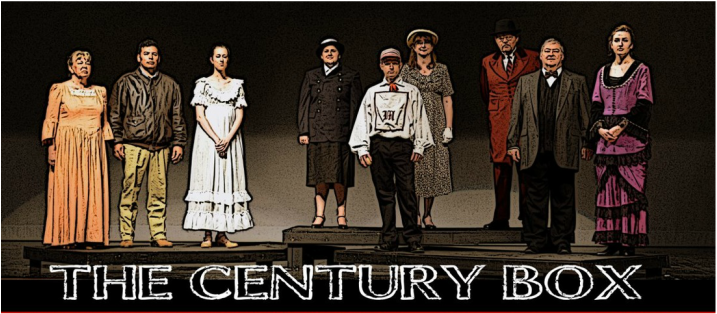
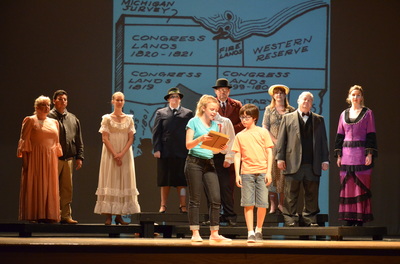
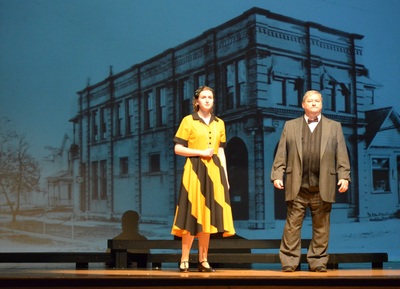
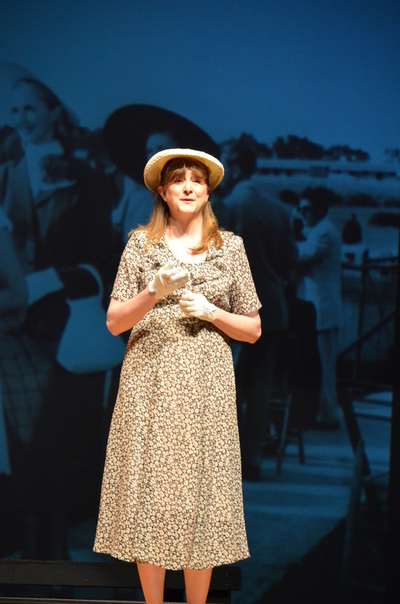
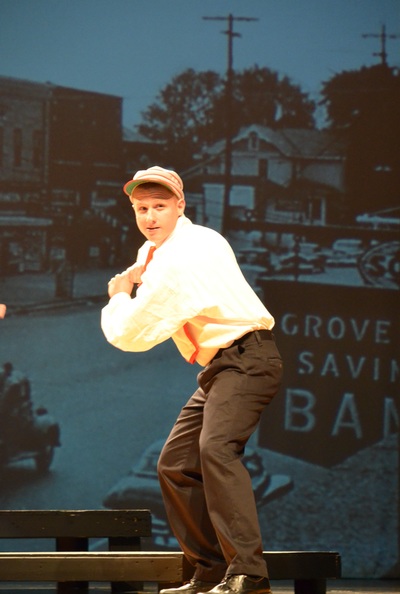
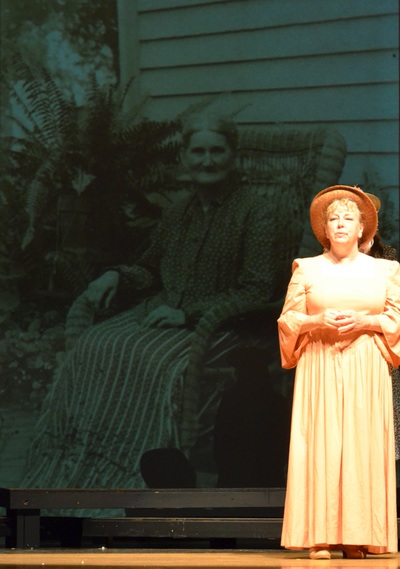
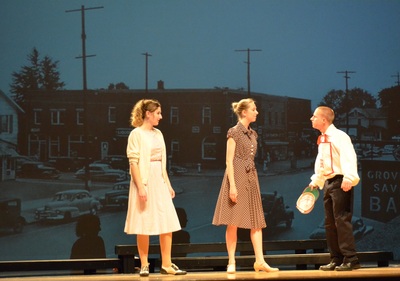
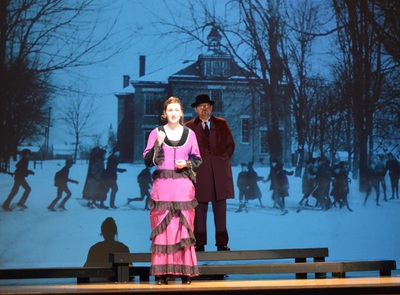
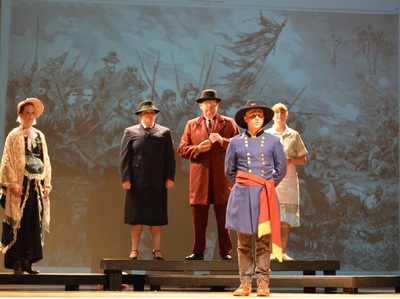
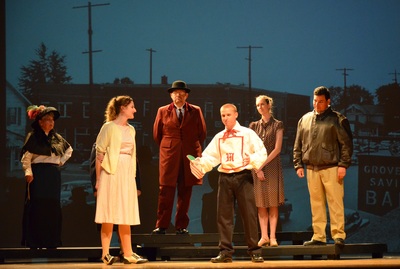
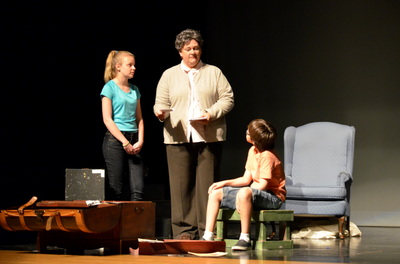
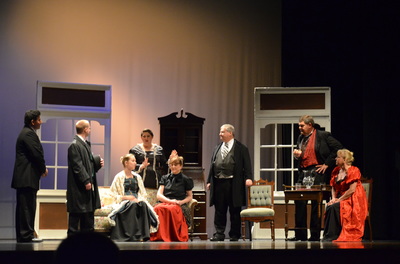
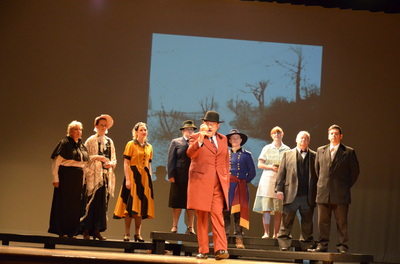
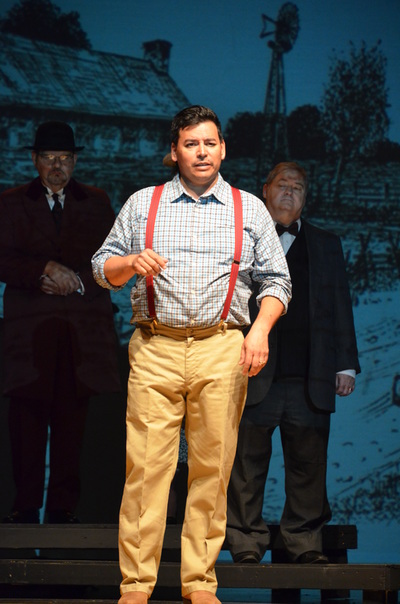
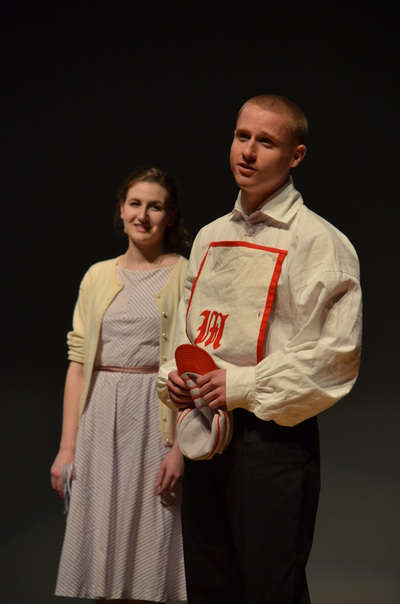
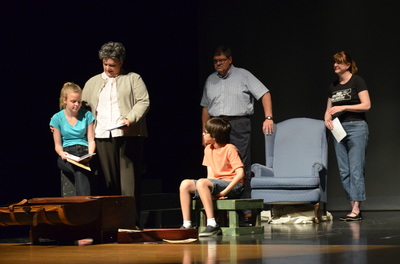
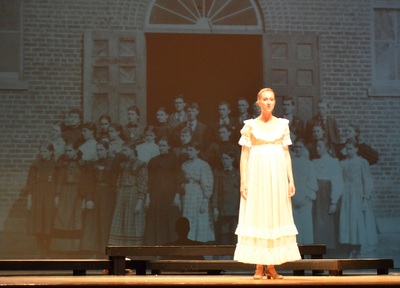
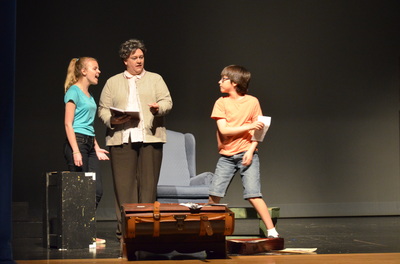
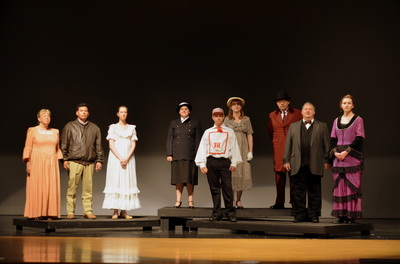
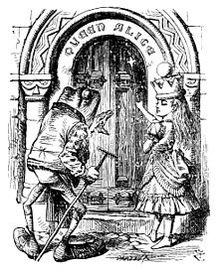

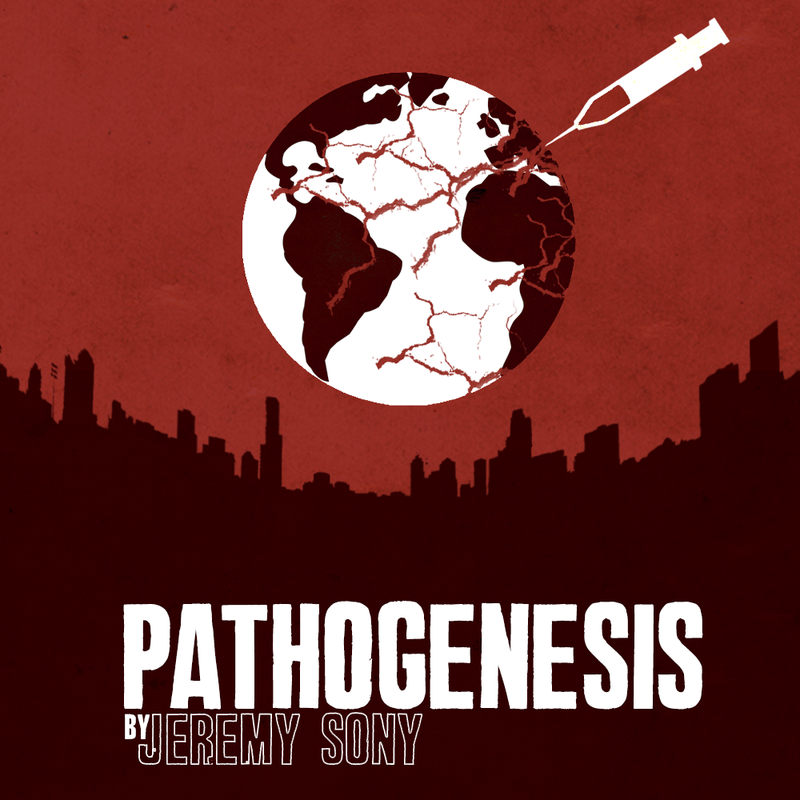
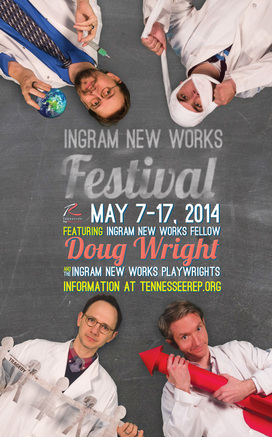
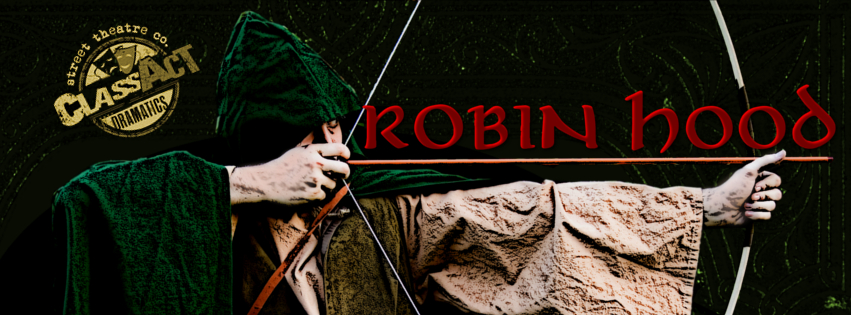
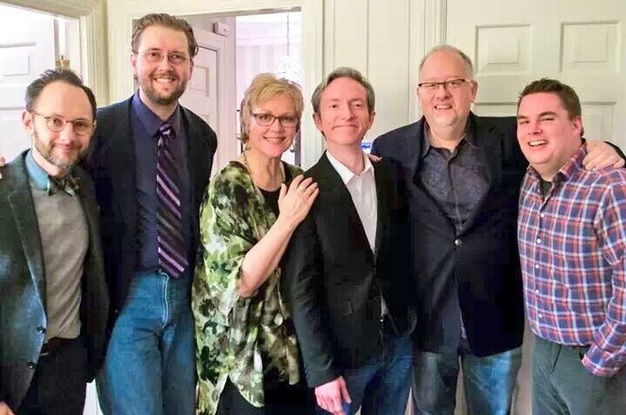
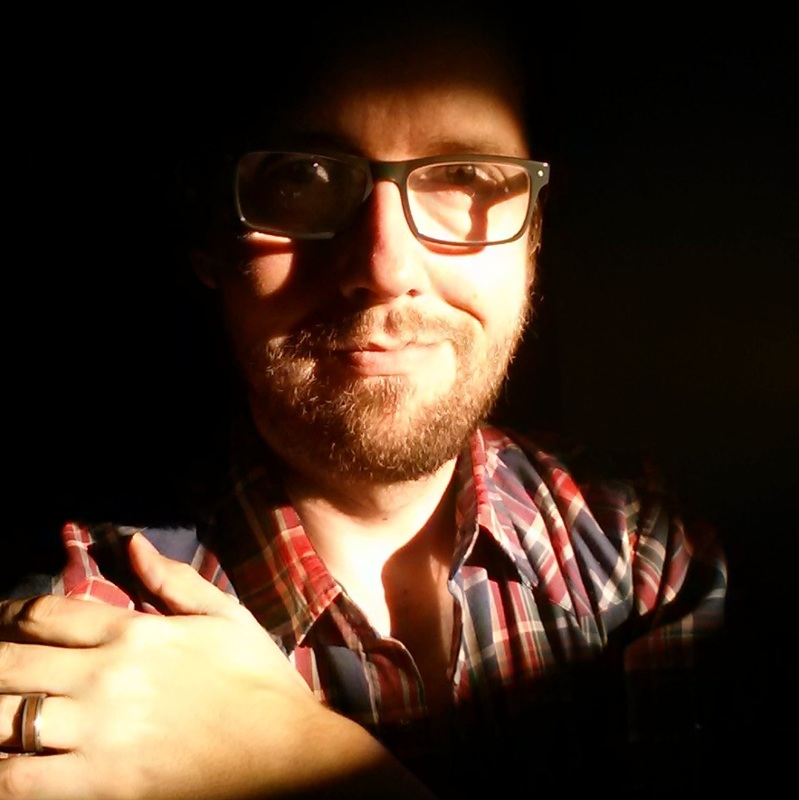
 RSS Feed
RSS Feed
